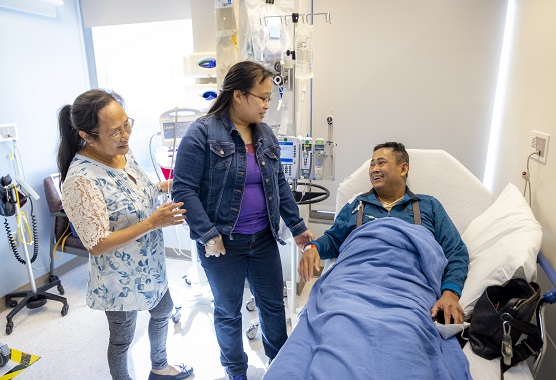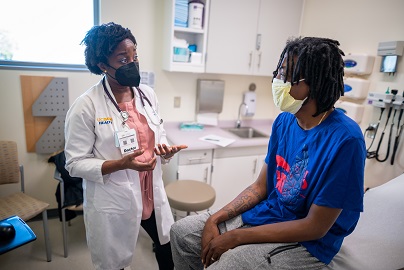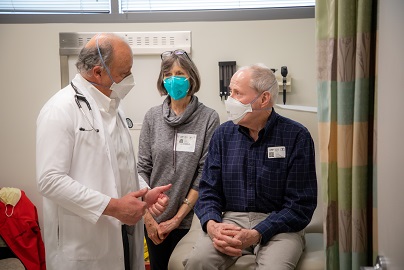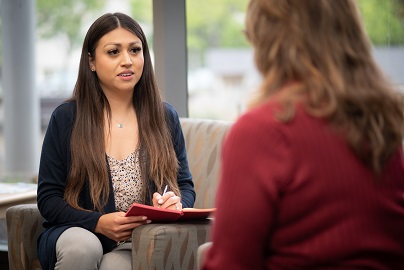Traditional Cancer Treatments
When you need cancer treatment, you can count on us for the most comprehensive therapies. We use advanced tools and techniques to create the best outcomes.
Medically reviewed on Nov. 09, 2023.

Expert Treatment for Cancer
UC Davis Comprehensive Cancer Center is recognized by the National Cancer Institute as one of the top cancer centers in the country. Our experts use leading-edge therapies to effectively treat all types of cancer.
Your medical team puts together a plan that includes the best cancer treatments for your unique situation. This may include one type of treatment or a combination of therapies.
Traditional Cancer Treatments We Offer
At UC Davis Health, you can be sure you’re getting the best cancer treatment for your specific condition. We have the tools, technology and expertise to provide the most effective treatment possible. Your team will work together to create an individualized treatment plan using one or more therapies.
Chemotherapy
Chemotherapy uses medications (delivered by IV or taken orally) to shrink tumors and kill cancer cells.
Hormone Therapy
Certain types of cancer (including some breast and prostate cancers) are fueled by hormones the body produces. Using hormone therapy to block or alter those hormones can help stop cancer cells from growing.
Immunotherapy
Immunotherapy is a newer type of cancer treatment. It uses your own immune system to recognize and attack cancer cells.
Radiation
Radiation therapy delivers high-energy rays directly to areas of your body that contain tumors and cancerous cells. The radiation kills cancer cells and helps keep them from multiplying.
Stem Cell Transplant
A stem cell transplant replaces your unhealthy stem cells with healthy ones — either from another part of your body or from a donor. The process is sometimes called a bone marrow transplant.
Surgery
Cancer surgery can remove cancerous tumors and surrounding tissue. We often use chemotherapy or radiation before or after cancer surgery for better outcomes. Sometimes — especially for early-stage cancer — surgery may be the only treatment needed.
Targeted Therapy
As the name implies, targeted therapy uses specialized medications to target cancer cells. Targeted therapy can change cancer cells, kill them or halt their growth and reproduction. Some targeted therapies are also immunotherapies.
Request an Appointment
Our cancer specialists provide thorough evaluations and personalized treatment plans. Learn more about how to make an appointment at UC Davis Comprehensive Cancer Center.
Patients
New Patient Referral Office
916-734-5959
UC Davis Health Referring Physicians
For providers in UC Davis Medical Group or our Cancer Care Network
Physician Referral Center
916-734-5959
External Referring Physicians
For providers who are external clinicians
Referral Office
800-770-9261
A cancer diagnosis is stressful, and you will likely have lots of questions. It can help to write down some thoughts before any meetings with your cancer care team — before, during or after treatment.
-

After Diagnosis
- Which treatment options should I consider?
- What side effects can I expect from these treatments?
- How often, and for how long, will I receive this treatment?
-

During Treatment
- How can I best manage my side effects?
- How will I know if the treatment is working?
- If it’s not working, do I need to try a different treatment?
-

After Completing Treatment
- When will treatment side effects go away?
- How often do I need to come in for checkups and scans?
- What is the likelihood of the cancer coming back?
What to Expect
Your medical team will create an individualized treatment plan that’s specific to your condition. But no matter what type of cancer treatment you have, you are likely to experience some physical and emotional effects.
Managing Side Effects
Side effects are, unfortunately, an inevitable part of most cancer treatments. We provide the support you need to help you cope with side effects, including hair loss, nausea, swelling, pain, skin rashes and more.
Nutritional Counseling
Some types of cancer treatment can affect your appetite or your ability to eat and drink. Working with a specialized oncology dietitian can help change your diet so you stay strong throughout treatment.
Emotional Support
Cancer diagnosis, treatment and even survivorship all bring unique emotional challenges. We connect you with experts who can support your emotional health throughout the journey.
When to Contact Your Oncologist
If you are concerned about any of the side effects of your treatment, talk to your doctor. If you experience chills, fever, chest pain, shortness of breath, severe headache or confusion, call 911 or go to the emergency room immediately.

Ranked among the nation’s best hospitals
A U.S. News & World Report best hospital in cardiology, heart & vascular surgery, diabetes & endocrinology, ENT, geriatrics, neurology & neurosurgery, and pulmonology & lung surgery.

Ranked among the nation’s best children’s hospitals
U.S. News & World Report ranked UC Davis Children’s Hospital among the best in pediatric nephrology, orthopedics*, and pulmonology & lung surgery. (*Together with Shriners Children’s Northern California)

Ranked Sacramento’s #1 hospital
Ranked Sacramento’s #1 hospital by U.S. News, and high-performing in aortic valve surgery, back surgery (spinal fusion), COPD, colon cancer surgery, diabetes, gynecological cancer surgery, heart arrhythmia, heart failure, kidney failure, leukemia, lymphoma & myeloma, lung cancer surgery, pacemaker implantation, pneumonia, prostate cancer surgery, stroke, TAVR, cancer, orthopedics, gastroenterology & GI surgery, and urology.

The nation’s highest nursing honor
UC Davis Medical Center has received Magnet® recognition, the nation’s highest honor for nursing excellence.

World-class cancer care
One of ~59 U.S. cancer centers designated “comprehensive” by the National Cancer Institute.

A leader in health care equality
For the 13th consecutive year, UC Davis Medical Center has been recognized as an LGBTQ+ Healthcare Equality Leader by the educational arm of America’s largest civil rights organization.

